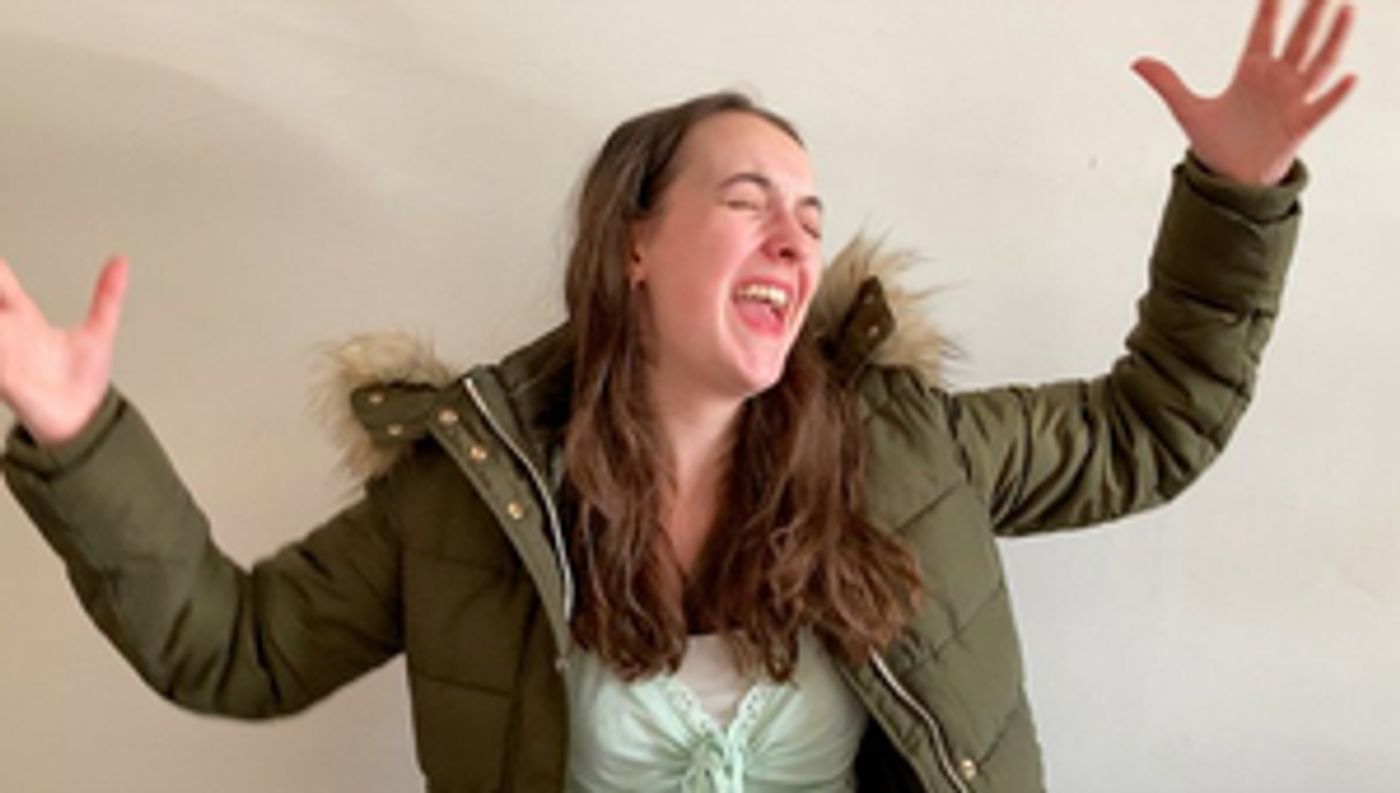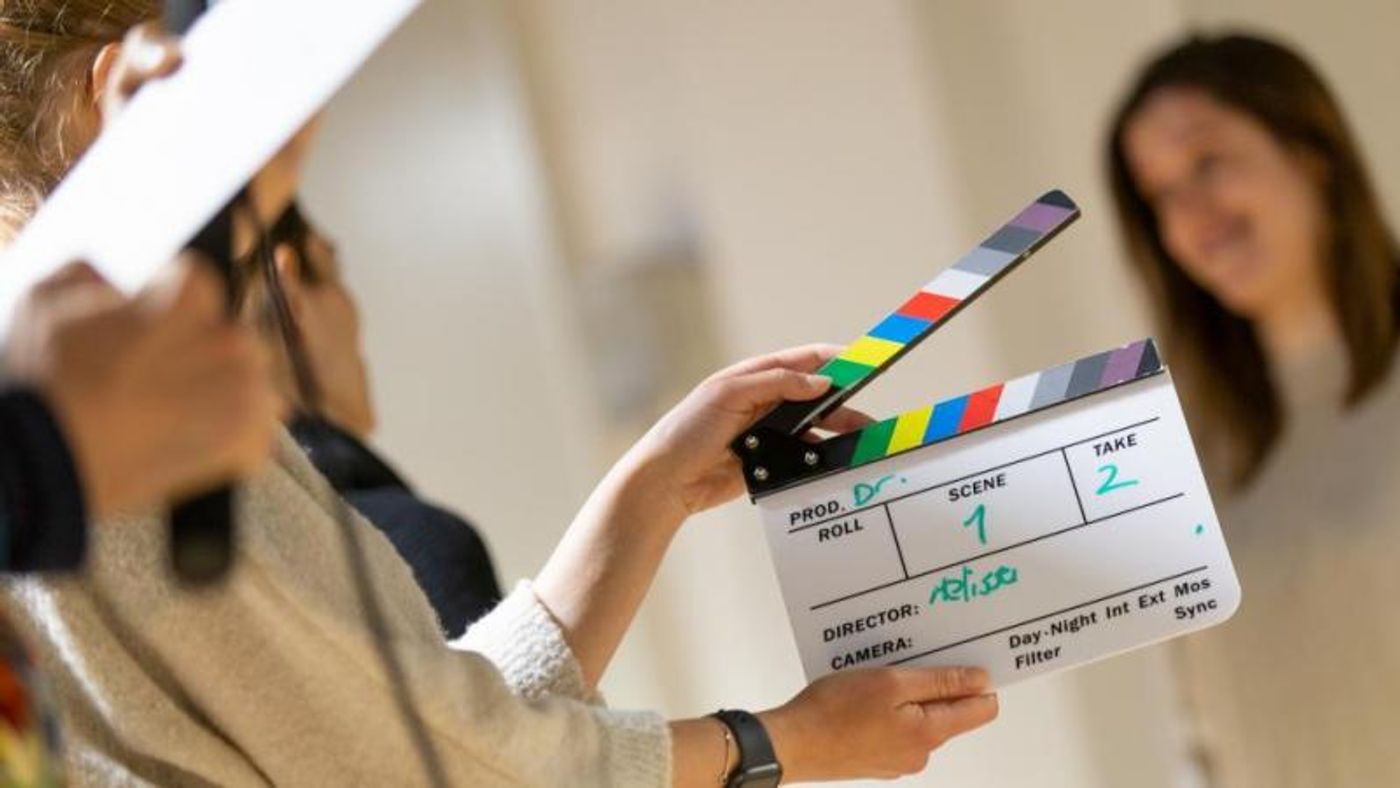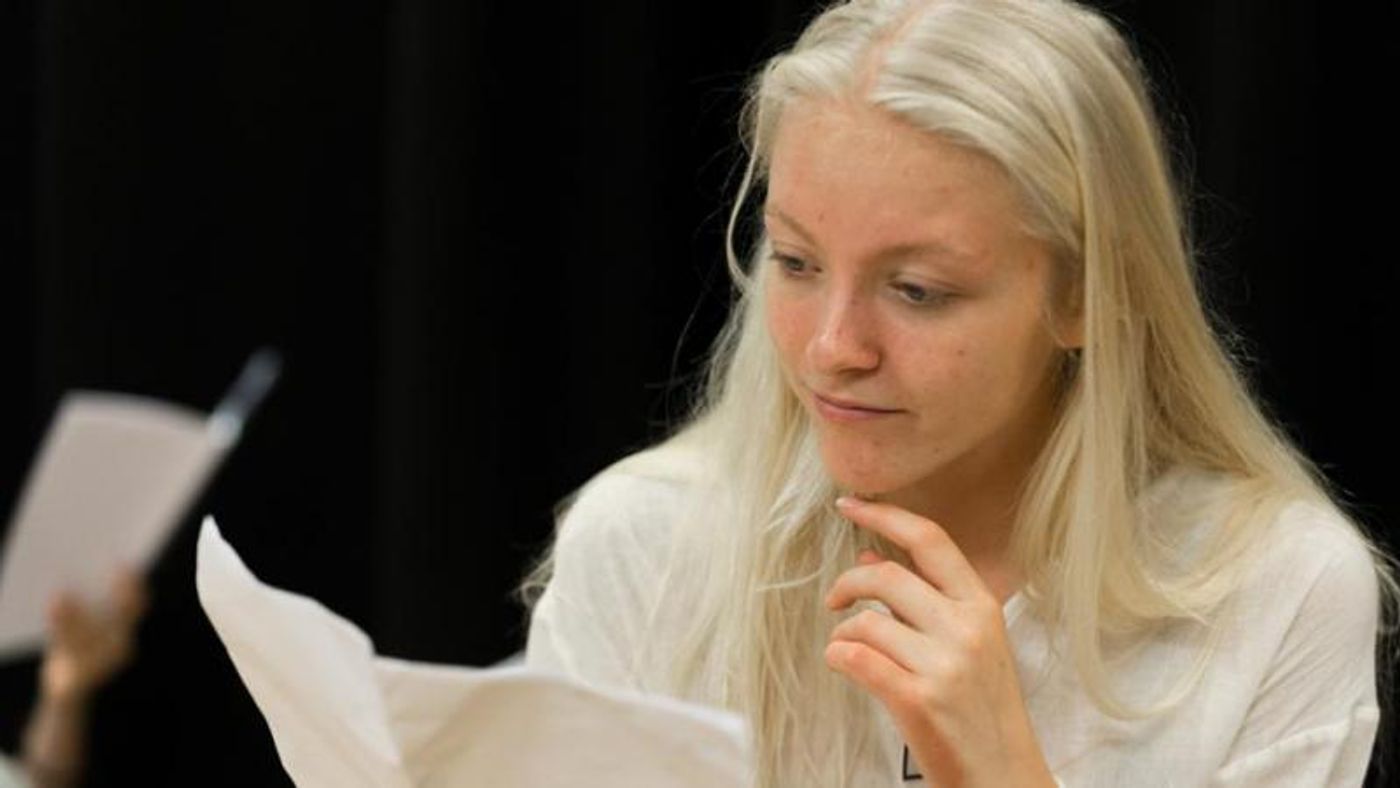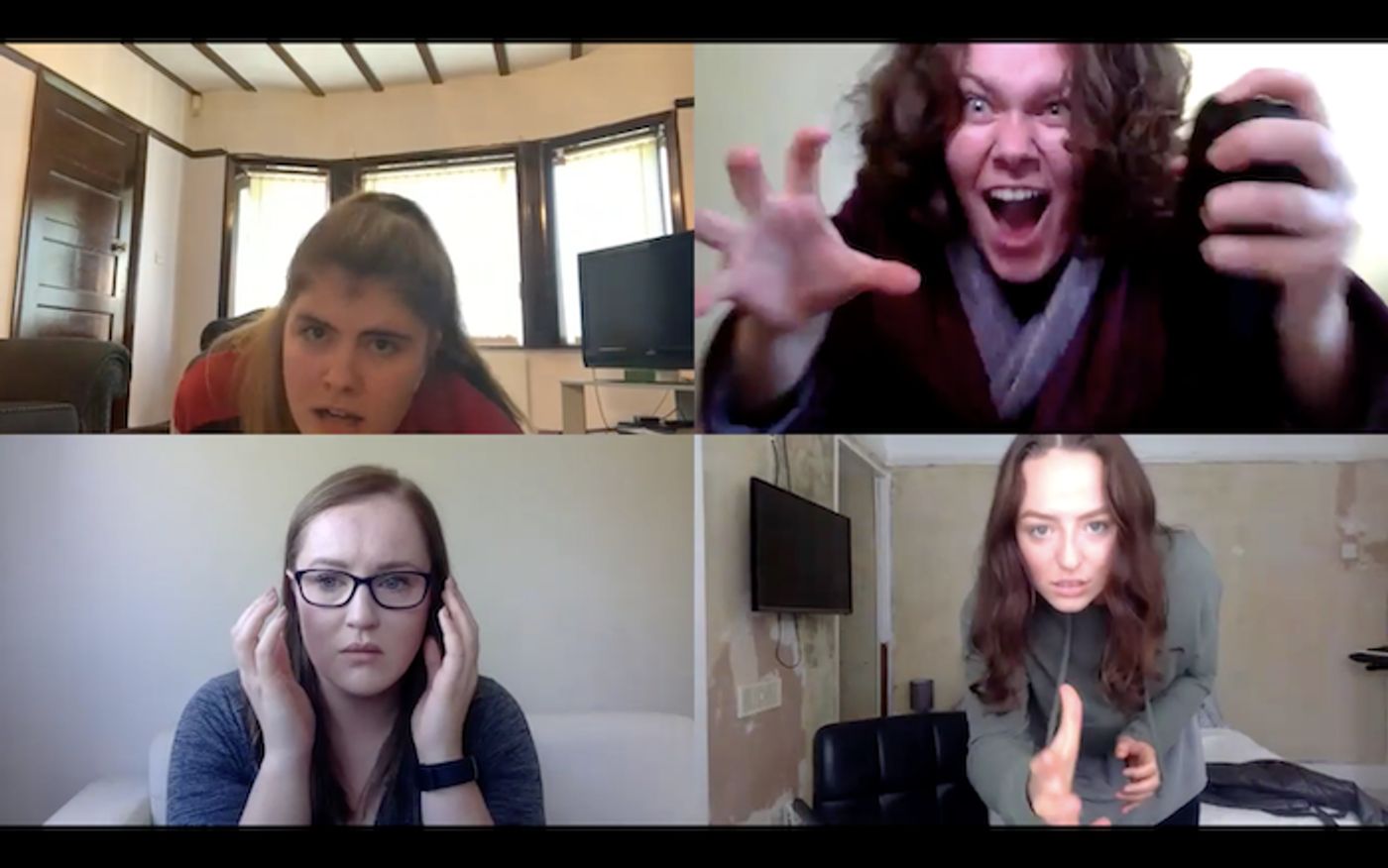Feature: How Drama Schools Are Responding To The Shutdown

London College of Music's
After the Tempest
The Coronavirus outbreak has, of course, had a major impact on drama schools. In-person teaching is impossible during the shutdown, and students who were preparing for productions or showcases - many of these a vital launchpad into the industry - have seen their live performances cancelled. So, how have drama schools pivoted during the crisis?
Students have praised the Guildford School of Acting (GSA) for their quick response in turning the live showcase into a digital one. GSA's Claire Parker says: "We realised that we had enough in place and just enough days to get it together and give the BAA cohort a virtual showcase on the very day and time that they would have been performing at Trafalgar Studios. Luckily, we were on the case anyway with showreel links on the website."
Instead of printing out programmes, GSA made them interactive and sent them out to everyone in the industry - along with links to the performers' headshots, showreels and Spotlight profiles. Parker explains: "I was imagining not only the chaos for the graduates, but also for the agents and casting directors by not putting this information all in one place. They would have instead been bombarded on social media by the eager and frustrated graduates.
"We are now preparing for the BA Production Students Showcase, editing footage taken on the dress rehearsal of the BAMT cohort [trailer below!] - which was taken the same day, as all the theatres shut and their showcase was cancelled too. It's actually been a lot of fun, and I know the students were over the moon."
GSA Head Professor Sean McNamara adds: "GSA, in common with many conservatoires, do not underestimate the scale of the challenges we are experiencing as a sector; we have to embrace the possibilities offered by online learning and adapting our delivery under these exceptional circumstances. We are striving to retain the core principles and values of conservatoire training and maintain our commitment to the education and future of our students. It is essential that we retain our close relationships with the creative industries and accept that the means by which we communicate and present our students will need to be altered and adjusted for the time being."
Other drama schools have also gone the filmed or virtual route. They include: Mountview, which has sent out a recorded showreel to agents; ArtsEd, whose showcase took place right before lockdown, and luckily was filmed, so could be easily distributed; the London College of Music; the London College of Music (LCM), which assisted students to remotely record self-tapes and create a virtual showreel; and the Royal Central School of Speech and Drama, which created a database with taped songs and monologues from students, along with links to their Spotlight profiles, and pinned them on their Twitter feed.

Central has also made its auditions virtual. As their Press and PR manager Megan Hunter explains: "Instead of attending a live audition, we will be asking applicants to submit a recorded audition online (for our performance courses) or to complete their interview online. Details on the specifics for each course and process have been sent to all scheduled audition/interviewees, along with guidance and advice from course teams and current students.
"We appreciate the weeks and months that our applicants have spent preparing for their auditions and interviews. This new format is different; everything is different at the moment. One thing has not changed: at Central, we want everyone who auditions and interviews with us to do well, and we wish all of our applicants the very best of luck."
As for helping current students, Hunter says: "We are currently working to move as much of our activity online as is practical and possible, and we are in regular contact with staff and students regarding facilitation of these activities. These include face-to-face tuition, training, productions, showcases and exhibitions, and recruitment and outreach activities.
"We are working as a matter of priority to move all of our teaching online and, from the start of the summer term, to enable our staff and students to continue working and learning remotely as much as possible. We are working rapidly to adjust to these extraordinary circumstances and will continue to update our community regularly."

Central is also exploring new ways to help students contact agents, "consulting with industry partners to ensure that we get this right, when the time is right," adds Hunter. "These are exceptional days, and we are far from alone in combatting these difficulties, but we will continue to explore every possible avenue by which to celebrate and share the work of our graduating students and to support them as they embark on their professional careers."
LCM has moved its students' final production After the Tempest online, as Alex Loveless, course leader for BA Acting and Theatre Making, explains: "This was to be a post-dramatic take on Shakespeare's The Tempest, and we are hastily adapting it so that it can be performed through both recorded media and in a live chat room environment!" After the Tempest will be screened live on YouTube on 5-6 June at 7pm - find out more on their Twitter @LCMActingThM.
Loveless is proud of his students for being "incredibly proactive". Other projects include a socially distanced version of The Importance of Being Earnest, and final year students editing their virtual showcase. "This is our inaugural graduating year, so we have more of an incentive than ever to pull out all the stops. I am heartened to say that one of our graduating students has, in the past couple of days, secured work as a resident director, so it can be done!"

After the Tempest
Faculty are also offering "one-to-one support via Skype and similar, and even skills workshops with theatre-makers and industry gatekeepers over the internet," notes Loveless. "I find that, at the present moment, the old hierarchies have been suspended and it is easier to access people than before - many of whom are sat at home and are happy to help out where they can."
In addition, "all of our teaching has moved online where practicable. We are even starting to see examples of good practice where highly practical subjects are concerned. It would be foolhardy to say, with an inherently intersubjective field such as acting, that this approach could ever replace being in a room with others, but a lot more is possible than one might immediately think. All of our basic curriculum is still being delivered - albeit sometimes in an altered format. It's been heartening to see how many colleagues from academia and the industry have been willing to share free resources with students of other institutions over recent days. I, for one, I'm very grateful for this."
As for prospective students, auditions have all been moved online, says Loveless. "I am assessing auditionees via Skype and online interview, as well as by online submission of a portfolio of creative work. Ironically, these arrangements arguably benefit many students, such as those from less advantaged socio-economic backgrounds, and the technology will hopefully allow us to develop good practice for the future."
Loveless is also staying positive about the future of the industry. "There are a number of prophets of doom out there who say that the performing arts are finished. This is palpable nonsense! The nature of our industry will change, as indeed will that if our society, but hopefully for the better. If the current crisis leads to a reassessment of values where some of the excesses of capitalism and globalisation are concerned, then so much the better. For so many reasons, we must all learn to live sustainably and as fellow citizens of a fragile planet. We will need the arts more than ever, and those visionary people within them, to point the way. After all, people don't just want to exist - they want a reason to exist."
Watch a trailer for After the Tempest below!
How has your drama school adapted to the shutdown? Let us know at @BroadwayWorldUK!
Videos

